Getting Your Commercial Kitchen Up and Running
August 29, 2019Getting your commercial kitchen up and running.
Serving Ware
If there’s nothing to serve the food on, there’s no restaurant. You’ll need tons of cutlery, plate ware, bowls, ramekins, cups, and glasses. Consider the number of tables you can fit in your restaurant and how many guests you hope to serve every night when factoring in how much to buy. Consider breakage – in the chaotic environment of commercial kitchens; it’s not uncommon to lose a plate or glass every few shifts.
Cooking Equipment for Your Commercial Kitchen
Consider what tools you’d need to execute your entire menu in one shift. Pots of all sizes, sauté pans, tasting spoons, mixing spoons, sheet pans, whisks, fish spatulas, ladles, bowls of all sizes, squeeze bottles, bench scrapers – the list goes on and varies widely depending on the type of food you want to make. You’ll also need more of each item than you expect.
Safety Equipment and Your Commercial Kitchen
Make sure your kitchen has proper safety equipment. A well-stocked first aid or medical emergency kit is crucial in a commercial kitchen that runs on fire and knives. Check your local fire department guidelines before purchasing fire, safety, or sanitation equipment, and avoid potential complications by always keeping your kitchen up to fire code standards.
Commercial Kitchen Freezers and Refrigerators
All commercial kitchens require a refrigeration system of some type. Without a fridge, you can’t keep the ingredients and prepared foods fresh. Freezers are also crucial for inventory management because it’s much more cost-effective to buy 300 steaks and freeze them than to buy ten steaks every day.
Industrial-grade refrigeration units are designed to meet the unique needs of the food industry. For example, they can cool large pots of sauce to a safe temperature in record time, so they’re a crucial purchase for any food handling operation. You’ll have to decide between reach-in units and walk-in units.
Make sure to seek professional help for installation and that you know how to properly maintain your unit, as they can be costly to repair.
Food Preparation Counters and Cutting Boards
Prep tables, counters, and cutting surfaces are essential to any commercial kitchen and come in various sizes. Choose preparation surfaces made of stainless steel, sturdy against corrosion, doesn’t absorb bacteria from food or meat and can withstand the harsh cleaning products used in commercial kitchens. On the line, you’ll want food prep counters that have small refrigerators underneath them for easy access to food prepped for each station.
As for cutting surfaces, choose either plastic or wooden cutting boards. Plastic boards are more comfortable to sanitize but can develop deep grooves that can hide bacteria. Wooden boards are generally tougher to clean than plastic ones but don’t develop grooves as quickly.
Ranges and Ventilation
If your restaurant plans on making anything but salad, you’ll need a kitchen range. The range is the powerhouse of the kitchen, so it’s essential to choose one that meets both your cooking needs. Like residential ranges, commercial units can be either gas or electric. If you’d prefer a visual, responsive cooking experience, go for a gas range.
Gas ranges make it easier to judge heat levels and change from high to low settings much faster than their electric counterparts. Alternatively, electric ranges have smooth, elegant, easy-to-clean designs and come in three sub-categories.
Standard electric ranges use coils to heat food, whereas you cook directly on the flat surface of smooth-top electric ranges. Electric induction ranges employ magnetic coils beneath a ceramic glass top to generate heat, but they require unique magnetic cookware to work.
Ovens
Most ranges come outfitted with an oven. If your operation centers around baked goods, it may be in your best interest to purchase a range with a convection oven setting. Unlike regular ovens, convection ovens have a fan and exhaust system that blow hot air around the food. They are a great appliance for roasting, toasting, making pies and cookies, or dehydrating.
Sinks
Sinks are vital to any kitchen because they provide running water as well as space for handwashing, cleaning produce, defrosting frozen meat under running water, or washing the occasional cooking utensil as needed.
Health and safety authorities typically require commercial kitchens to install a triple-sink wash station and a commercial dishwashing machine, as well as a dedicated handwashing sink.
Cooking Equipment Spotlight: Choosing the Right Fryer
Choosing the right fryer may seem straightforward. After all, you just need something to hold oil and keep it hot so you can cook some things, right? Not quite. You have a lot of choices, which helps you choose the cooking equipment that’s perfect for your...
Keep Your Foodservice Equipment Coolers Clean & Functional
Whether you run a convenience store or a restaurant, you need safe storage for food that must be refrigerated. Commercial coolers are the foodservice equipment you need – but it’s important to keep them in good shape. Otherwise, your investment won’t give you the...
Keep Pests Out of Your Commercial Kitchen
Having pests in your kitchen is already a nightmare, but if health inspectors find them it gets even worse. Keep your guests safe and your restaurant operating safely. Your commercial kitchen is automatically a target of a variety of bugs and other pests. It has...
Restaurant Supplies: Make a Great Impression With the Right Dinnerware
When customers sit down in your restaurant, what’s one of the first things they see? Yes, the décor, hostess, and more. But there’s something else that matters a great deal – but is often overlooked. It’s the silverware and tableware! People will judge your...
The Best Kitchen Equipment for a New Graduate
If you’re like many people, you know a young adult who will be setting up their own place for the first time this summer. It’s an exciting time, but very nerve-wracking. It’s amazing how quickly the costs add up as you outfit an apartment – especially in the kitchen!...
Outside the Commercial Kitchen: Food Safety While Catering
Many restaurants and other eating establishments like to provide catering for special events. Catering a huge business, worth over $53 billion per year. Catering allows your restaurant to reach customers who might never set foot in your establishment otherwise. It’s...
Help Your Commercial Kitchen Run Smoothly With Proper Leadership
We focus a lot on how having the right equipment can keep your commercial kitchen moving quickly and efficiently. However, it’s not just the equipment that makes the difference in your restaurant’s success. Having proper leadership in your commercial kitchen – and...
3 Times Used Kitchen Equipment is As Good As New
Are you nervous about buying used kitchen equipment? It’s understandable. After all, restaurants are subject to a lot of regulations, and if something goes wrong you could lose your business. However, there are many times that used kitchen equipment makes perfect...
Kitchen Equipment You Need: Wellness Mats
When it comes to serving customers, you leave no stone unturned. You choose the best kitchen equipment, test your recipes, buy the best ingredients, and hire excellent staff. Unfortunately, there’s something that even the savviest restaurant owner often forgets –...
Is Your Kitchen Equipment Ready for National Hamburger Month?
Restaurants can always use a fun and playful way to bring in new customers. Did you know that May is National Hamburger Month? Why not use that fact as an entertaining way to bring in new customers? You can offer a special promotion on a hamburger, or feature other...
Understanding Restaurant Equipment: A Variety of Fryers
You may think of a fryer as a simple machine with a basket and hot oil. If you do, you don’t quite understand this restaurant equipment. You’re missing out on the enormous range of different fryers available! The truth is there are four very different types of...
Why a Frozen Drink Machine is Vital Foodservice Equipment for Your Store
It’s starting to get hot out there, and as summer approaches you should be thinking about how to promote your cold food and drink offerings. Each store will have different foodservice equipment, but if you don’t have a frozen drink machine, you should seriously...
How to Increase Sales From Your Cold Case
As we move into May, it’s time to start thinking about ramping up your summer sales. One of the key focuses can be the cold case in your store. This piece of foodservice equipment can really boost your bottom line. A cold case gives you an opportunity to display...
Keep Restaurant Equipment Safe: Proper Use of a Breading Station
Keeping food safe and sanitary is vital for any restaurant. A lot foodborne illness isn’t the result of the food itself, but rather a misuse of restaurant equipment that causes contamination. A breading station is a piece of equipment that has a lot of opportunity for...
5 Keys to Creating the Perfect Restaurant Seating Areas
Restaurants are about so much more than just food. From the setting and layout of your restaurant to your choice of colors, it takes a lot more than an appealing menu to keep diners coming back for more. When setting up your restaurant, booths and chairs are important...
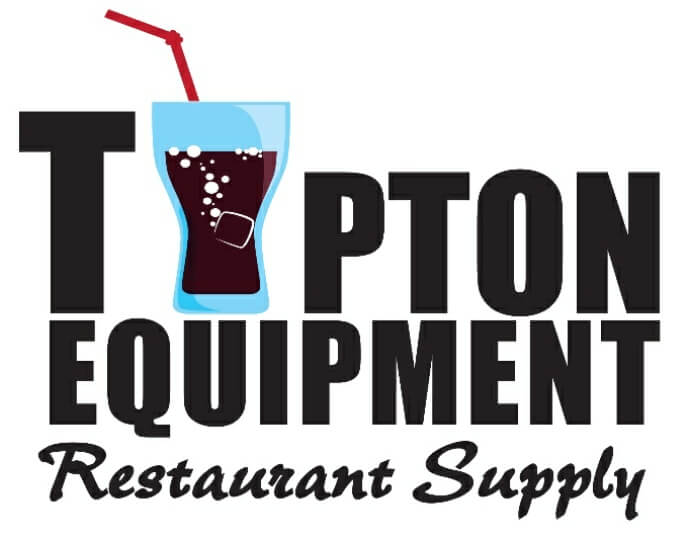
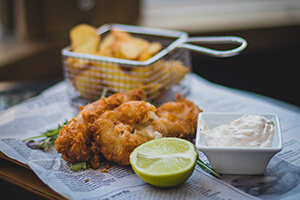
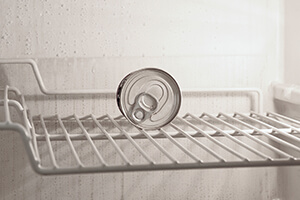
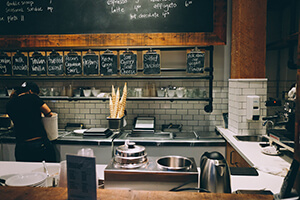



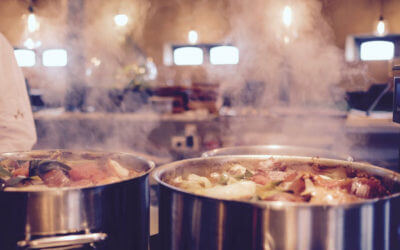
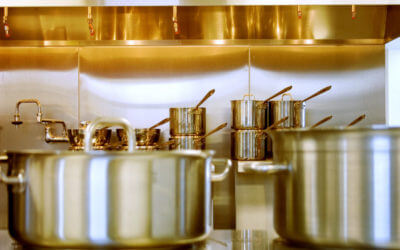
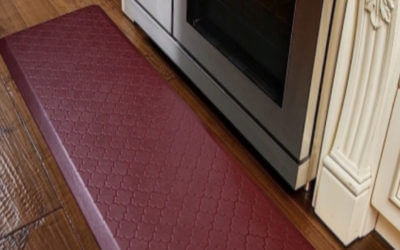
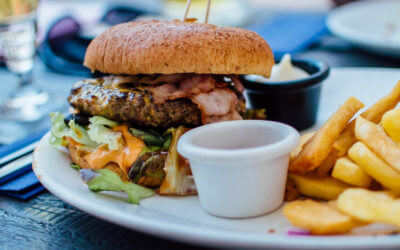
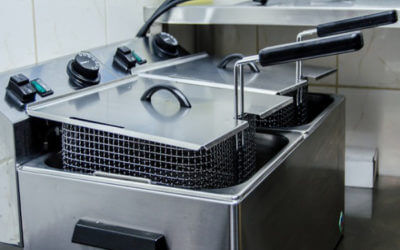


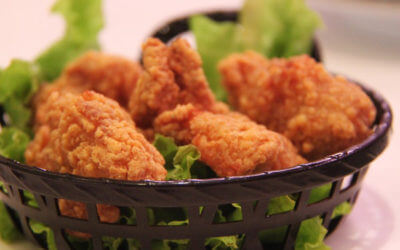
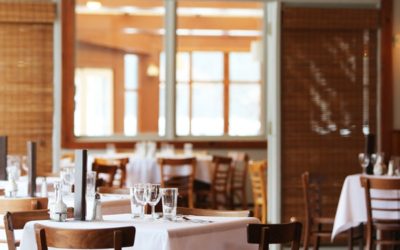
Ensuring adequate tableware is essential for any restaurant, but equally important is having reliable commercial food processing equipment to handle high-volume food preparation. With a fast-paced kitchen environment, investing in durable equipment can streamline operations, reduce downtime, and meet customer demands efficiently, helping restaurants serve quality meals without delays or setbacks in service.